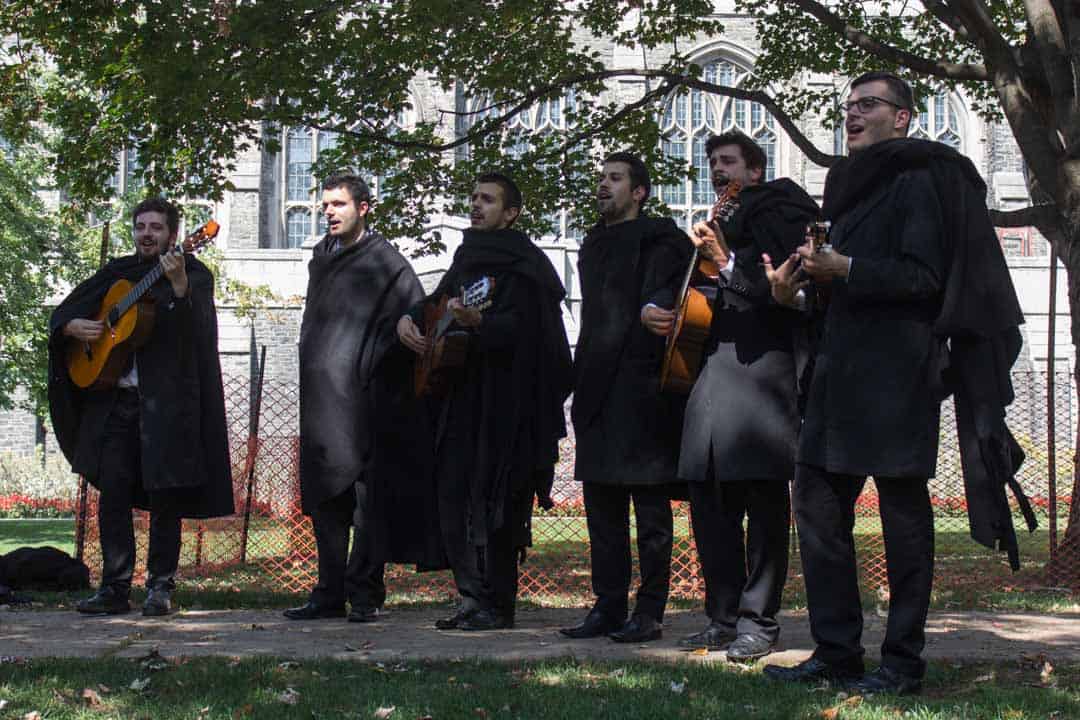On September 25, the Estudantina Universitária de Coimbra traveled from Portugal to U of T to showcase the ‘tuna’ style of music for the students of the Department of Spanish & Portuguese at U of T. This form of music — often performed by groups of university students — is one embedded in Portuguese culture, with origins as early as the thirteenth century. The Estudantina has been so successful that they frequently travel to other countries to share their music.
Tuna first became popular in Portugal when university student musicians would sing in the streets as a means of sustenance. They would receive food or money for their performance from the wealthier people in the town, and since then, students have stopped performing for their livelihood and now play simply out of a love for the music.
The band was founded in 1984 and has since grown to include 200 members. Bruno Sacramento, a band member for two years, believes that even after students leave university, they remain connected to the Estudantina for life. Sacramento described the group as akin to a family.
Joining the Estudantina isn’t limited to music students. In a post-performance interview, the members introduced themselves and their programs of study, revealing their diversity of programs. Some members even learned to play their instrument after joining the band, having limited prior experience.
The Estudantina played a variety of songs in the Victoria College quad, bringing some much needed energy to a swelteringly hot day. Their music ranged from upbeat pieces to traditional love ballads. The usual barrier between the audience and the performers was disregarded in this dynamic performance, with band members pulling students up to dance during fast songs and serenading professors during love ballads. The passion from the Estudantina was undeniable and their energy was contagious, opening the students to a new side of Portuguese culture that they may not have been exposed to otherwise.
Events like these remind students how learning new languages can be so exciting, emphasizing that there is a world vastly different from our own with its own rich beauty. “This type of music is really regarded as a very important symbol within Portuguese cultural heritage,” explained Professor Luciana Graça. “These groups… are authentic ambassadors of our culture, our traditions and, of course, our language.”
Putting language in context not only strengthened the students’ Portuguese language skills, but allowed them to see a global view of Portuguese culture.


